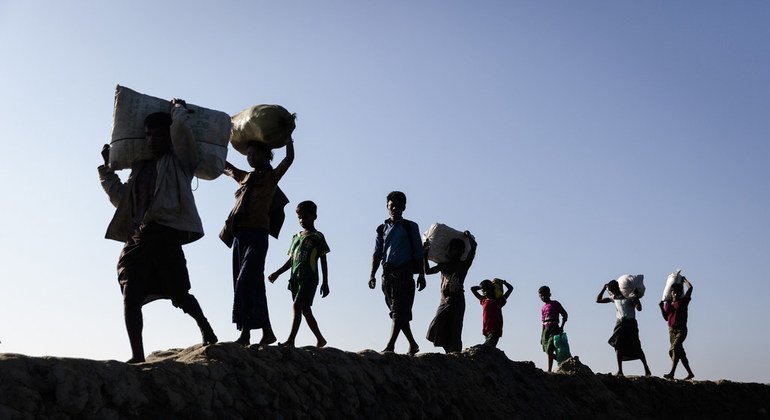Genocide prevention advisor warns of global threat posed by hate speech


Alice Nderitu, Special Advisor to the Minister on the Prevention of Genocide, emphasized that in addition to violence, hate speech also reinforces discrimination, stigmatization, dehumanization and marginalization society.
“Violence does not start when physical attacks are launched. Violence often begins with words. Hate speech spreads intolerance, divides society, promotes and endorses discrimination and incites violence,” she told the ambassadors at Security Council.
Her press conference was presented in context 2686 resolutionunanimously adopted in June 2023, on tolerance and international peace and security.
In the resolution, the 15-member Council called on UN member states to condemn and prevent hate speech, extremism and violence, and to encourage the promotion of tolerance and dialogue. interculturalism, women’s participation, social cohesion, quality education and peace initiatives.
It also requires response on the spread of hate speech and timely reporting.
► Watch Ms. Nderitu’s press conference before the Security Council
Hate speech and misinformation
In situations of crisis or ongoing conflict, hate speech increases existing tensions and vulnerabilities.
Ms. Nderitu warned that combined with misinformation, Hate speech causes division and directly threatens civilianspotentially leading to serious crimes such as genocide, war crimes and crimes against humanity.
Combined with disinformation, hate speech is divisive and poses a direct threat to civilians
Additionally, the increasingly widespread use of social media has exacerbated the reach and impact of hate speech, she added.
Such divisive, misleading, and hateful narratives cause hate speech to spread quickly and reach distant audiences, thereby increasing the potential for offline harm.
“The widespread use of social media… is allowing anyone to use hate speech, reaching distant audiences more quickly and thereby increasing the potential for offline harm. Minority groups are particularly targeted. And so are women, especially those in public places,” Ms. Nderitu warned.
Fragile balance
At the same time, she emphasized that addressing hate speech should never be used to stifle free speech.
“Restricting, banning and shutting down the internet is not the solution and may violate human rights, including freedom of expression. They can also silence those who stand up against hate speech, including civil society, human rights defenders and journalists.”
United Nations Action Plan
The Special Adviser emphasized the United Nations’ commitment to raising awareness of the dangers of hate speech and addressing its impacts, motivations and root causes.
United Nation Hate Speech Strategy and Action Plan Providing a comprehensive framework to address the scourge in line with international human rights standards, she said, highlighted various tools, including dialogue, education and promoting engagement and social peace.
She added: “This strategy is being applied across the United Nations system, especially in this area, to support national actors, including Member States, who are responsible for primary responsibility in addressing hate speech.”
Dedicated action
Ms. Nderitu said that since the adoption of the Council resolution, several United Nations peacekeeping operations have monitored and prioritized countermeasures, including against hate speech on gender basis.
“Tackling hate speech is complex and requires dedicated attention and supportShe said, calling on the Security Council to continue its political commitment and support and on Member States to develop national action plans rooted in human rights and civil protection.




